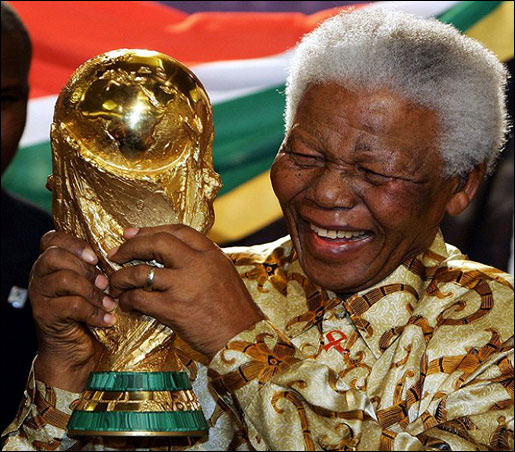 In April I discussed the decision by the World Bank to extend a multi-billion dollar loan to Eskom to build a massive new coal-fired power plant in South Africa. At the time I wrote:
In April I discussed the decision by the World Bank to extend a multi-billion dollar loan to Eskom to build a massive new coal-fired power plant in South Africa. At the time I wrote:When GDP growth comes into conflict with emissions reduction goals, it is not going to be growth that is scaled back. Further, when rich countries wanting emissions reductions run into poorer countries wanting energy, it is not going to be rich countries who get their way. When energy access depends upon cheap energy, arguments to increase energy costs or deny energy access are not going to be very compelling. The South African coal plant decision well illustrates many of the political boundary conditions that shape climate policy. Policy design will have to accommodate these conditions, rather than ignore them or think that they will somehow go away.In a story today in ClimateWire, the story of the Eskom coal plant went from an illustration of the political realities of energy access to an illustration of the farcical nature of international climate policy:
A South African utility company that recently won a $3.75 billion World Bank loan to build the world's fourth-largest coal-fired power plant now is seeking international carbon credits for making the plant more efficient.If successful in qualifying for carbon credits -- and there is little reason to expect otherwise -- then Eskom is going to be paid for reducing emissions by building the world's fourth largest coal plant. This is of course a sort of magical solution that I have written about before. Of course a new coal plant, even if built with the best available technology is going to dramatically increase emissions, regardless of the accounting tricks of offsets and emissions trading. This alone is farcical, but it gets even better.
The Environmental Defense Fund, an environmental lobbying group, appears to understand the basic problem:
But it is not just Eskom that is high up on the leagues tables for chutzpah; EDF is right up there as well. EDF is one of the main advocacy groups calling for passage of the American Power Act, the so-called Kerry-Lieberman bill in the Senate, which along with Waxman-Markey which passed the House, would create the ability for US companies to get emissions offset credits for doing things exactly like investing in the Eskom plant.If Eskom ultimately wins CDM approval -- and potentially millions of dollars -- for avoiding greenhouse gas emissions by using more efficient technology, it won't be the first company to do so. But the move is provoking fury from environmentalists who have fought the plant. They insist Eskom should not be allowed to receive both World Bank aid and carbon credits to build a plant that will emit 25 million tons of carbon dioxide into the atmosphere annually.
"If there were a World Cup for chutzpah, Eskom would be the bettors' choice to win," said Jennifer Haverkamp, managing director for international climate policy at the Environmental Defense Fund. "First they go after scarce international public funds, now CDM credits. The Medupi Plant is becoming a poster child for how far we are from the road to a sustainable, climate-stable path for development."
So EDF vigorously supports the use of international offsets as a mechanism of "emissions reductions," but at the same time doesn't want those mechanisms applied exactly as they are designed. The World Cup for chutzpah has some fierce competition.